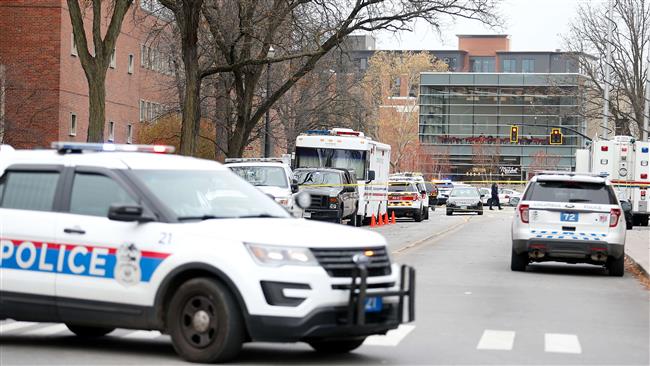
RNA - The Council on American–Islamic Relations (CAIR) said Tuesday that Muslims were “saddened and heartbroken” by the attack.
“We want to condemn in the strongest possible terms this and any other kind of senseless violent act,” Jennifer Nimer, CAIR’s Ohio legal director, told reporters.
The attack took place when a Somali man, identified as Abdul Razak Ali Artan, rammed his car into pedestrians on the Columbus campus before getting out of the vehicle and going on a stabbing rampage.
According to police, around 80 people were on the sidewalk when Artan violently drove the car over the kerb.
However, he was immediately gunned down by an officer before hurting more people.
“Millions here in the United States, billions across the globe condemn acts of violence,” said Roula Allouch, who chairs CAIR’s national board. “They do not speak for us, they don’t speak to our faith.”
Basil Gohar, a local mosque president, said Muslim communities were “horrified” by the attack.
“As Ohioans, as Americans and as Muslims we are horrified by this tragedy and this attack,” he said, adding that the attack had nothing to do with the culture and the heritage of Somali Muslims.
A third-year student at OSU, Artan was a Somali refugee who was staying in the US as a legal permanent resident.
Some media reports connected the 18-year-old to the Daesh (ISIL) terrorist group after police and the FBI said they were investigating the attack as a possible act of terror.
The reports stirred public outrage towards Somali refugees, who were already feeling down after being called a “disaster” by President-elect Donald Trump.
In an interview in August last year, Artan had criticized the media for providing a false image of Muslims.
The attack came amid debate among Ohio lawmakers at the state Senate to reduce the penalty of carrying a gun on a campus from a felony to a misdemeanor.
847/940